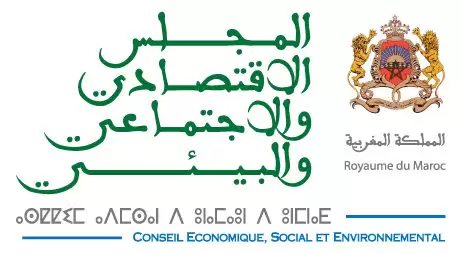
Sports Economy: a Driver of Growth and Employment that Needs to be Leveraged
In its opinion titled “Sports Economy: a Driver of Growth and Employment that Needs to be Leveraged”, the Economic, Scientific and Environmental Council (CESE) underscores the huge impact the sports economy sector has particularly on the youth and future generations, with a potentially substantial part to take in the process for driving the country’s
Synthesis
In its opinion titled “Sports Economy: a Driver of Growth and Employment that Needs to be Leveraged”, the Economic, Scientific and Environmental Council (CESE) underscores the huge impact the sports economy sector has particularly on the youth and future generations, with a potentially substantial part to take in the process for driving the country’s socioeconomic development.
Despite the importance of the demographic dividend of the Moroccan youth as a springboard for the development of the sports economy, the Council explains in its opinion, the sector continues to show a series of fragilities and dysfunctions that hinder any transformation of it into a real vector of job and wealth creation.
On the demand side, and as the High Commission for Planning (HCP) database shows, Moroccans spend less of their leisure time on sport pursuits. Moreover, the number of sporting licenses in our country remains at a clearly low level with only 337,400 licenses, accounting for less than 1% of the entire population.
Besides, sport in Morocco is still widely perceived to be solely a social event, with its economic impact often eclipsed. Worse even, it is managed, for the most part, by national associations that are funded mainly through public or private grants and donations.
The perspective brought by Law no. 30.09 on Physical Education and Sports (2010) has not really allowed for sports managers and associations to evolve into investment-attractive sports business entities that operate within the private sector. The model Statutes proposed by the aforementioned law does not adequately address the specificities of the various actors engaged in the sports sector.
Along with this, the absence of a Statutes for high-level professional sports players makes the professional sporting activity less attractive and therefore less valued. This is all the more so, given that the average sporting career is short, with the reconversion of professional athletes being a challenging thing if not planned and organized properly.
Based on this diagnosis, the Council proposes to deliver wholesale economic and social transformations that enable the evolution of sports into a full-fledged industry. Not only does this require an adequate organisational framework, but it is also dependent on the sporting activity being structured and professionalized.
As such, the Council recommends that a number of measures be put in place, most notably:
At the legislative and regulatory level: there is need to carry out a wholesale revision of Law no. 30.09, with particular focus on adapting the model Statutes to reflect the needs and realities of stakeholders across the board ranging from neighbourhood sports clubs to professional football schools.
At the human capital level:
Devise a sports career training and support strategy involving all stakeholders: namely, sports federations, clubs, local authorities, National Vocational Training Agency (OFPPT), National Employment Agency (ANAPEC), and others.
Identify sporting talent and potential from an early age, notably by promoting school and university sport competition programmes.
Establish a professional athlete Statutes that provides this category with adequate social protection coverage.
Promote the image of Moroccan sportswomen, such as through a spotlight showcase of famous great female athletes from various sports.
Concerning sports governance and funding:
Revisit the modalities for the supply of government funds, by instituting more equitable allocation rules and criteria, while providing the necessary visibility for sports federations, especially small-sized ones.
Liberalize the market for TV sports content distribution rights, while ensuring the broadcasting of all club sporting activities on grounds of equity, meritocracy, and the revenues generated through sports broadcasting rights.
Review the ticketing strategy to attract and retain new spectators, while offering fans a wide range of ticket packages and prices.
Provide for the obligation for sports clubs to provide the necessary information about the expected economic impact of a sporting activity, prior to its organization, the end in view being to chart the objective and scope of the activity and estimate the economic and social yield of investing in a sporting event with public or private financing sources.
In terms of infrastructure management:
Condition any public funding for a new sports infrastructure on the elaboration of preliminary studies establishing the objectives of this infrastructure, describing its total size, calculating its building, operating and maintenance costs, and specifying its management mode.
Put in place standard management tools for proximity sport facilities, accompanied by the specification of clearly defined follow-up indicators that can assist in attaining the objectives initially set for these structures.
These recommendations, if implemented effectively, are sure to yield a substantial increase in the share of the sector of sports products in the GDP, estimated by the Council, according to the data available, at just 0.5% in 2020. This is eventually key to bringing together in an integrated vision a mainly non-profit sector, where sport is a leisure activity, and an investment-attractive economic sector and a generator of wealth and sustainable employment.
Drawn up through a participatory approach getting all stakeholders to work together, the present opinion is the fruit of a wide-ranging debate between various constituent categories of the Council, and the outcome of a series of hearings involving relevant key actors. This opinion is also informed by the results of the consultation launched by the Council on its new digital feedback platform for citizen contribution “Ouchariko”. The respondents showed a great interest in the sports practice. The survey results are consistent with the analysis set forth in the opinion and the recommendations made.



